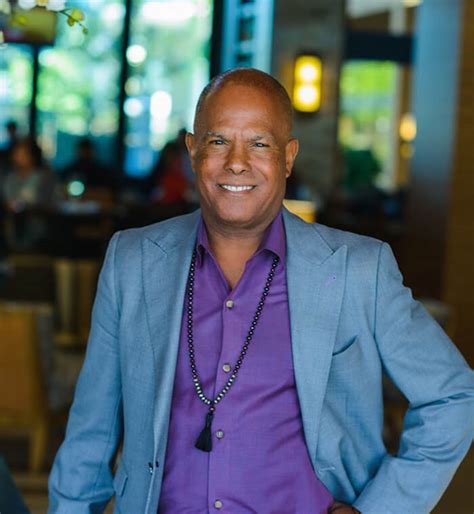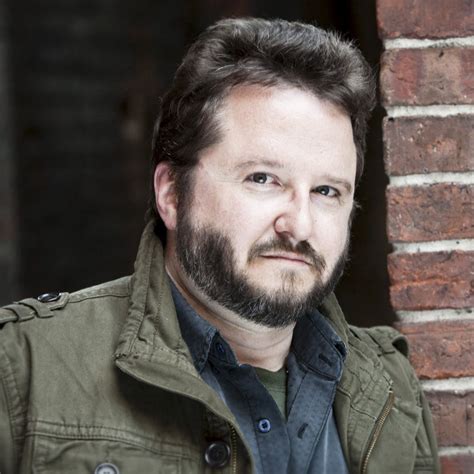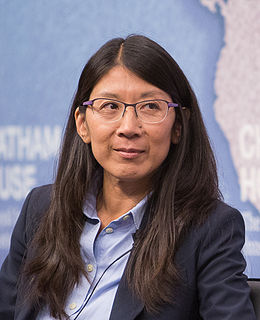A Quote by Michael Beckwith
Going back to my mother's passing, there was no way I could hold back my tears or sense of grief at knowing her physical presence left the planet. Working consciously with such an in-my-face overwhelmingly painful loss, I was able to process it to the point of accepting that although my relationship with her would be different, I could still sense and celebrate that there was no separation between our spirits. Being present and open to each stage of grief eventually led to her visiting me in my dreams and a tangible sense of her presence.
Quote Topics
Able
Accepting
Although
Back
Be Different
Being
Between
Celebrate
Could
Different
Dreams
Each
Eventually
Face
Going
Grief
Her
Hold
Knowing
Led
Left
Loss
Me
Mother
Open
Our
Painful
Passing
Physical
Planet
Point
Presence
Present
Process
Relationship
Sense
Separation
Spirits
Stage
Still
Tangible
Tears
Visiting
Way
Working
Would
Would Be
Related Quotes
Perhaps I will die too, she told herself, and the thought did not seem so terrible to her. If she flung herself from the window, she could put an end to her suffering, and in the years to come the singers would write songs of her grief. Her body would lie on the stones below, broken and innocent, shaming all those who had betrayed her. Sansa went so far as to cross the bedchamber and throw open the shutters ... but then her courage left her, and she ran back to her bed, sobbing.
Even after the age of 50 it was impossible for me to see my mother as a human being. I felt she was a monster, and she had subtly been influencing my behavior and my thoughts and my dreams for so long that she was kind of a monster; she was a demon. And when I brought her back to life, I could feel that malevolent presence around me again, that woman who was totally incapable of giving nurturing to anybody, and, you know, her selfishness and her withdrawn indifference to everything but her own needs.
I'll say this again: Her presence would be the best Mother's Day gift I could ever ask for. I know Kate Siegel a big bestselling author now, but I was sliced, no, ripped open from my boobs down to my baby cannon to bring her into this world, all but bathed in her puke for years, and acted as her own personal chauffeur for the first sixteen years of her life.
I'm part of the tribe who have said goodbye to one parent and are feeling a sense of responsibility for the one who remains - in my case, my mother. How do I make her time smoother, happier? How do I try to ease her, a widow, away from the dark well of grief without dishonoring the necessity of that grief?
Well, anyway, her death changed our lives for the better, because it brought a kind of awareness, a specific sense of purpose and appreciation we hadn't had before. Would I trade that in order to have her back? In a fraction of a millisecond. But I won't ever have her back. So I have taken this, as her great gift to us. But. Do I block her out? Never. Do I think of her? Always. In some part of my brain, I think of her every single moment of every single day.
One thing I did have under my belt was, my mother lost her mother when she was 11. She mourned her mother her whole life and made my grandmother seem present even though I never met her. I couldn't imagine how my mom could go on but she did, she took care of us, she worked two jobs and had four children. She was such a good example of how to conduct oneself in a time of grief. When I lost my husband, I tried to model myself as much as I could on her.
I wanted to tell her that she was the first beautiful thing I had seen in three years. That the sight of her yawning to the back of her hand was enough to drive the breath from me. How I sometimes lost the sense of her words in the sweet fluting of her voice. I wanted to say that if she were with me then somehow nothing could ever be wrong for me again.
I. At Tea THE kettle descants in a cosy drone, And the young wife looks in her husband's face, And then in her guest's, and shows in her own Her sense that she fills an envied place; And the visiting lady is all abloom, And says there was never so sweet a room. And the happy young housewife does not know That the woman beside her was his first choice, Till the fates ordained it could not be so.... Betraying nothing in look or voice The guest sits smiling and sips her tea, And he throws her a stray glance yearningly.
Daddy looked at her hard, and right before my eyes, he changed. I watched him inflate again, shake off his own emotions and puff himself up for her. Become her man. Her rock. I smiled. I loved him so much. He'd dragged mom kicking and screaming from grief once before and I knew I could rest easy that he would never let grief steal her from him again. No matter what happened to me.
And I ask myself what it is about me that makes this wonderful, beautiful woman return. Is it because I'm pathetic, helpless in my current state, completely dependent on her? Or is it my sense of humour, my willingness to tease her, to joke my way into painful, secret places? Do I help her understand herself? Do I make her happy? Do I do something for her that her husband and son can't do? Has she fallen in love with me? As the days pass and I continue to heal, my body knitting itself back together, I begin to allow myself to think that she has.
People inspire me. Every day, I meet amazing individuals in the field. When I see a mother who has walked for three weeks to come to a MSF clinic, with two kids on her back and her belongings on her head, facing intimidation and physical abuse on her way, I am inspired by her resilience - her desire for life.
Her mother died at the age of 29, essentially turning her face to the wall and deciding to die. And so we can only imagine the agony she felt. And Eleanor Roosevelt really wanted to make her mother happier, and - and to make her live, you know, make her want to live. And there's something about, you know, when your mother dies, this sense of abandonment. I think Eleanor Roosevelt had a lifelong fear of abandonment and sense of abandonment after her parents' death.
Neither loss of father, nor loss of mother, dear as she was to Mr Thornton, could have poisoned the remembrance of the weeks, the days, the hours, when a walk of two miles, every step of which was pleasant, as it brought him nearer and nearer to her, took him to her sweet presence - every step of which was rich, as each recurring moment that bore him away from her made him recal some fresh grace in her demeanour, or pleasant pungency in her character.
How was it that he haunted her imagination so persistently? What could it be? Why did she care for what he thought, in spite of all her pride in spite of herself? She believed that she could have borne the sense of Almighty displeasure, because He knew all, and could read her penitence, and hear her cries for help in time to come. But Mr.Thornton-why did she tremble, and hide her face in the pillow? What strong feeling had overtaking her at last?


































